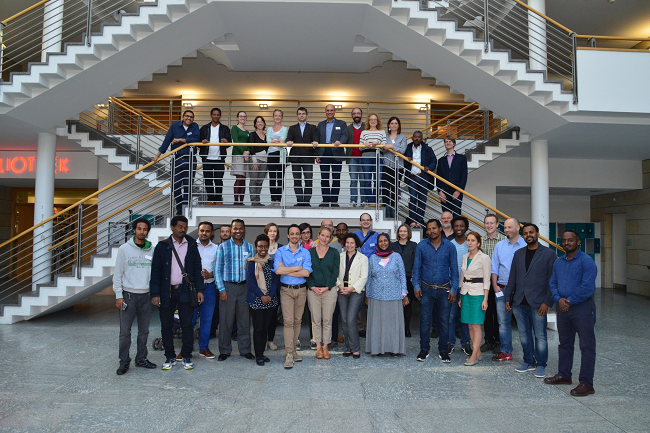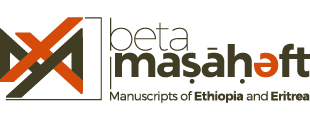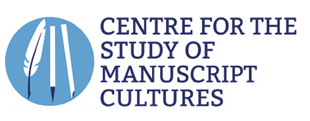Hiob Ludolf Centre First Summer School in Ethiopian and Eritrean Manuscript Studies
From 27 September to 1 October 2016, the Hiob Ludolf Centre for Ethiopian Studies, with the support from the Centre for the Study of Manuscript Cultures, the projects TraCES and Beta maṣāḥǝft: Manuscripts of Ethiopia and Eritrea organized its first Summer School in Ethiopian and Eritrean Manuscript Studies.
Introduction
The highlands of Ethiopia and Eritrea have been long home to a rich manuscript tradition. At the latest since the Late Antiquity, texts were transmitted in manuscript form.
There is no reliable figure for the total number of surviving Gəʿəz manuscripts, the numbers are likely in hundreds of thousands: there are many thousands churches and monasteries in Ethiopia and Eritrea, each in the possession of at least several manuscripts, with biggest collections counting several hundred codices. While the assumed numbers are very high, the number of historical – most valuable for researchers – manuscripts is diminishing at a quick pace. Field research confirms that over 90% of each manuscript collection is composed of manuscripts dating from the nineteenth and twentieth century. This underlines the necessity to record what has survived, and analyse the form and the content of these witnesses of the centuries past.
Several projects in Ethiopian and Eritrean manuscript studies have been and are still being conducted at Universität Hamburg, many of them involving the advances in Digital Humanities, and the time has come for us to share our knowledge and experience.
Aims of the school
The school aims at training graduate students and junior scholars in methods used in Ethiopian and Eritrean manuscript studies. Lectures and seminars in topics ranging from History to Philology to Codicology to Cataloguing shall cover the most central aspects of research and help in developing skills necessary for theoretical and practical tasks in the study of manuscripts. Digital technologies that have become indispensable in the past years shall be showcased. Practical exercises will include digitization and analytical description of manuscripts.
The school is open to students and scholars of all disciplines, but some degree of knowledge of Christian Orient (not necessarily Gəʿəz) as well as experience of study and/or research dealing with one of the oriental traditions is expected.
Participation
The Summer School shall be conducted in English. The classes shall take place every day from Tuesday (Sept. 27) through Saturday (Oct. 1).
The participation in this first Summer School is subject to registration. 25 participants shall be selected from all qualified applications that will reach us before the deadline (31 May 2016).
The selected participants will be asked to pay a small fee of €170 Euro towards tuition and learning materials. The fee shall also include one dinner reception. Other meals or accommodation are not provided by the organizers.
A very limited number of grants will be awarded to excellent Summer School applicants from Ethiopia and Eritrea. The grants shall cover the inscription fee, the accommodation costs for up to 7 nights, and provide a subsistence contribution of 25 Euro per day for the duration of the school.
Please indicate on the application form if you wish to apply for a grant. Please check the registration page for application requirements.
Please also consider exploring other sources of financial aid. Your home institution might be able to advise you on financial aid possibilities.
All students will receive a certificate of participation.
Note that on Monday, 26 September, 2016 a get together of the Comparative Oriental Manuscript Studies network takes place in Hamburg. The event is open for everyone to attend. More information is available on the COMSt website.





